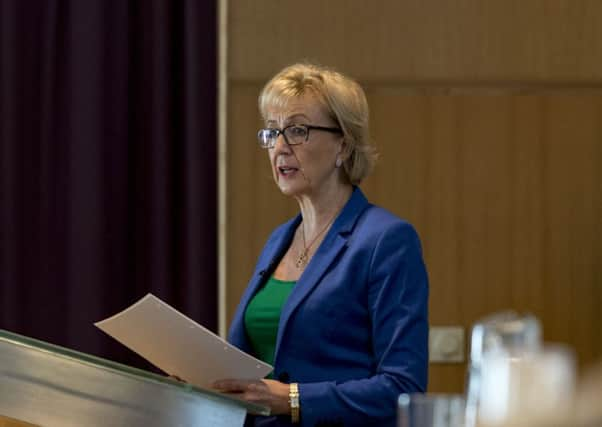Ministers facing growing calls from agriculture to guarantee access to migrant labour


Addressing the annual conference for the National Farmers Union yesterday, Defra Secretary Andrea Leadsom sought to reassure the sector that their concerns about the post-Brexit labour market have been heard “loud and clear”.
But her pledge to “find out what [farmers] need” did little to mitigate the stark warning from NFU president Meurig Raymond that without access to a reliable agricultural workforce Britain will “lose the ability to produce its own food”
Advertisement
Hide AdAdvertisement
Hide AdAnd this warning will be echoed by the Country Land and Business Association (CLA) today, as the organisation tells MPs that special labour arrangements must be introduced now if the UK wants to ensure a sustainable farming industry once it leaves the EU.
Giving evidence to Parliament’s Environment, Food and Rural Affairs committee, CLA deputy president Tim Breitmeyer will call for guarantees over the status of EU migrants currently working in the sector.
But he will also press for the creation of a new seasonal worker scheme for both EU and non-EU migrants, to help fill jobs that are “vital to the needs of the rural economy”.
“Farms and other rural businesses need to know that after Brexit there will still be a flexible, skilled and secure workforce so they can plan for the future and invest in their business,” he will argue.
Advertisement
Hide AdAdvertisement
Hide Ad“The rural economy is already at risk due to labour shortage. We need certainty that a new seasonal agricultural workers scheme will be introduced immediately and not after the UK leaves the EU.”
The committee session comes off the back of the first day of the NFU conference, which saw Mrs Leadsom promise to fight the agricultural industry’s corner “at every opportunity” throughout the Brexit process.
Addressing concerns about access to workers, she told delegates that she has “heard loud and clear the vital role they play in many farm businesses”, and is committed to finding out “what kind of labour you need... whilst exploring the role that innovation can play in support of this”.
This followed a speech by Mr Raymond, in which he sent a clear message to Government about the union’s demands for Brexit and frustrations about the lack of clarity on future trade, labour and policy arrangements.
Advertisement
Hide AdAdvertisement
Hide AdHe warned that without access to both permanent and seasonal workers “the lights would go out in our biggest manufacturing sector... and Britain will lose the ability to produce and process our own food”.
In a direct reference to Theresa May’s Lancaster House address, he went on to inform the Secretary of State that “no deal” on areas like trade for agriculture would be tantamount to “a bad deal”.
And responding to fears that post-Brexit trade deals could see British farmers undercut by businesses that are not bound by the same food and welfare standards, he urged ministers against forging “bad deals with new partners... at the expense of keeping long standing good deals alive”.
“That is not what a successful Brexit looks like,” he said.
Picking up on Mrs Leadsom’s references to “new technologies that complement the workforce”, Lib Dem rural affairs spokesman Baroness Parminter expressed concern that the Government believes labour “can be replaced overnight by mechanisation”.
Advertisement
Hide AdAdvertisement
Hide Ad“It is frankly unrealistic and ignoring the concerns of many farmers,” she said.
She added that the UK is already seeing shortages of workers “due to the falling pound and rise in anti-immigrant sentiment since the Brexit vote”.
“The Government has a responsibility to reassure farmers and EU workers that Britain will not shut its doors to the skilled labour on which our agricultural sector relies,” she said